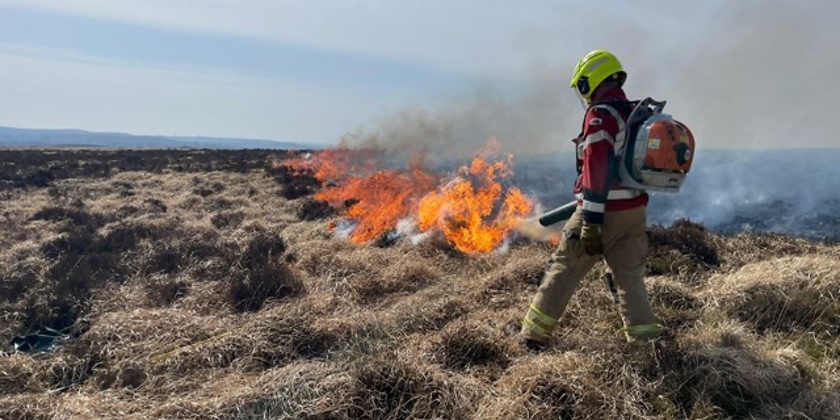Fire chief thanks crews after dry weather sparks surge in gorse and grass fires

A prolonged spell of dry and fine weather has led to an exceptionally busy period for North Wales Fire and Rescue Service, with fire crews attending over 170 grass and gorse fires so far this year.
More than 40 of these incidents have been classified as wildfires, many requiring multiple crews and extended hours on scene to bring them under control.
Dawn Docx, Chief Fire Officer at North Wales Fire and Rescue Service, praised staff for their commitment and professionalism during this challenging period.
“Our fire crews have attended over 170 grass and gorse fires since January, with over 40 classed as wildfires,” she said. “Many of these wildfires have required multiple crews and officer attendance for hours at a time.”
She added that control room staff have also experienced a marked rise in calls, both from the public reporting fires and from individuals notifying about controlled burning.
“My heartfelt thanks go to everyone involved for their professionalism and dedication,” she said.
The service continues to promote its WildfireWise campaign, which shares advice on how to prevent wildfires and stay safe outdoors. The fire chief is calling on residents and visitors to take simple precautions, including avoiding lighting campfires, only using barbecues where permitted, and clearing away glass which can magnify sunlight and start fires.
Docx also issued a reminder to landowners that the permitted period for heather and grass burning ended on 15 March, or 31 March in upland areas.
“Anyone found burning outside of the Burn Plan Period will be prosecuted and it could affect their single farm payments from Welsh Government,” she said.
Deliberate fires remain a concern, and the fire service is urging anyone with information to contact CrimeStoppers anonymously on 0800 555 111.
“If you do see a wildfire, get to a safe place, call 999 and ask for the Fire and Rescue Service,” said Docx.
“Taking extra care and adhering to these regulations is crucial for preventing uncontrolled fires and protecting our communities,” she added.










